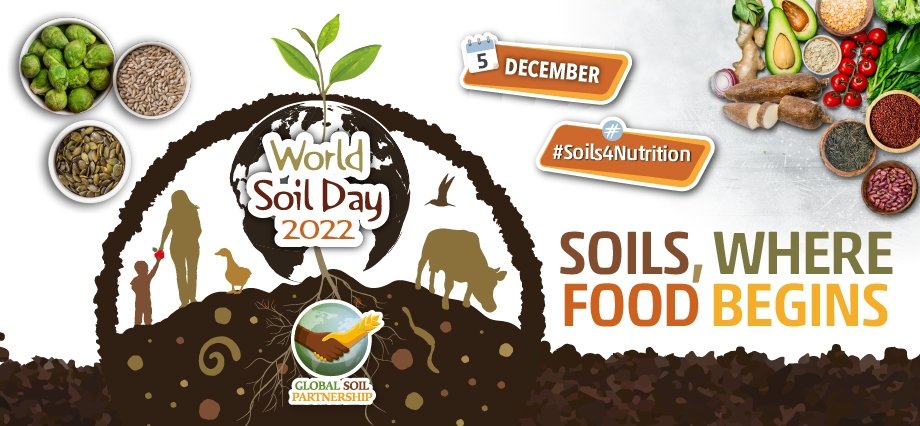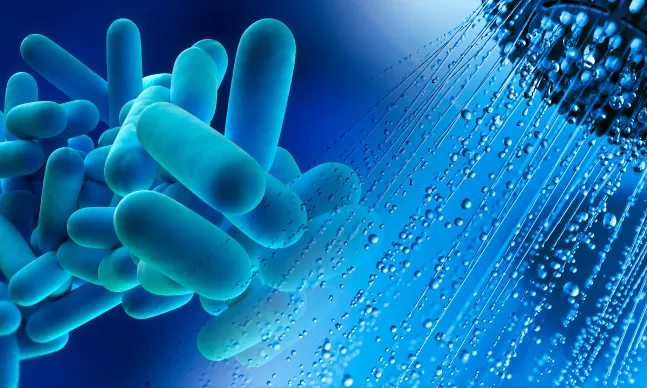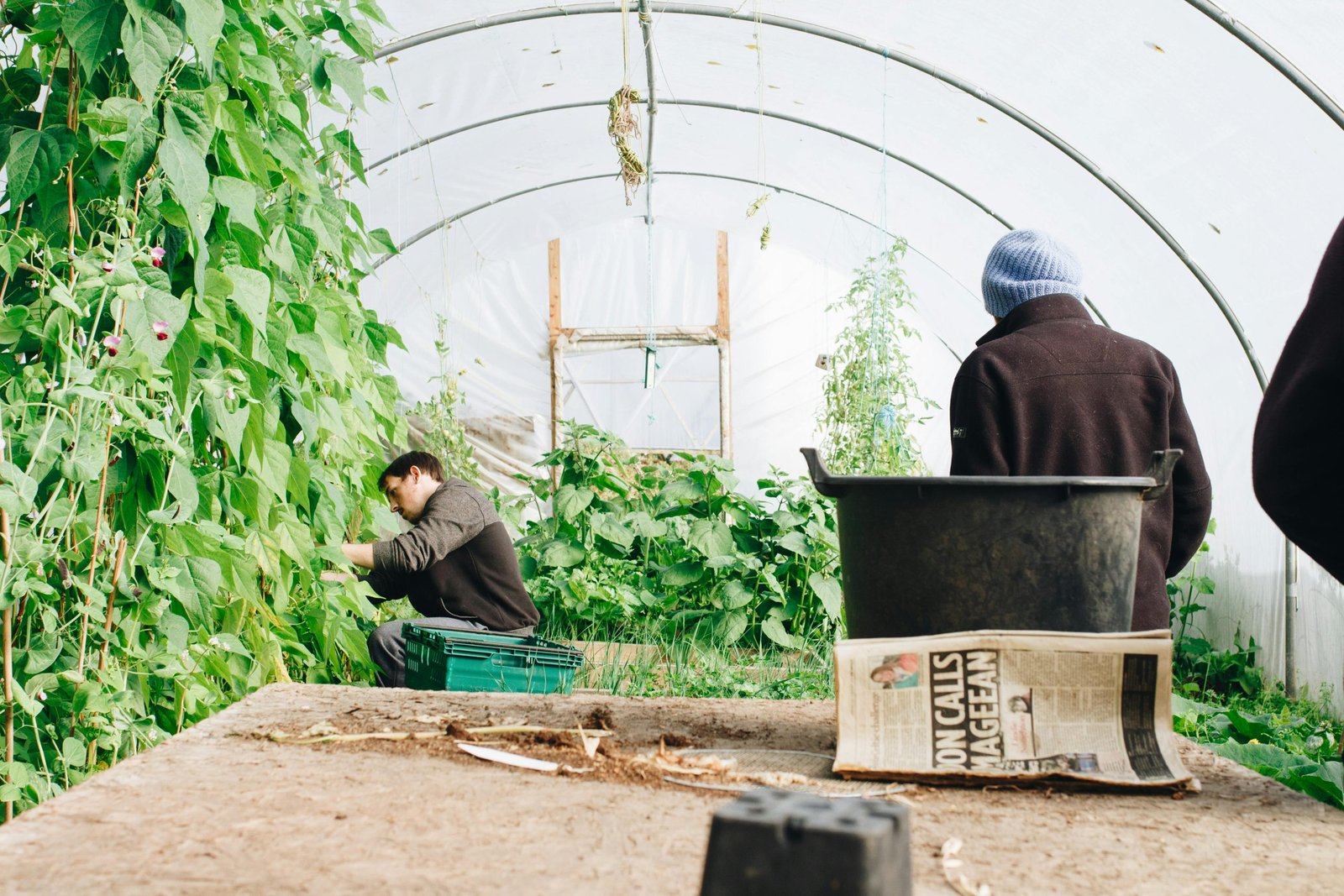Did you know that?
It takes up to 1000 years to build up 2-3 cm of soil
Despite our technological advances, humanity still relies on a few centimetres of soil to survive
Farmers produce almost 95% of our food through soil
Like us, soils need a balanced and varied supply of nutrients in appropriate amounts to be healthy
When soils degrade and nutrients are not replenished after harvest… they lose their ability to grow life
Soil nutrient imbalance is one of the main causes of degradation. About 33% of the world’s soils are degraded
Loss of soil fertility leads to low crop yields and crop failure, which can lead to hunger, malnutrition and poverty
An estimated 2 billion people worldwide suffer from micronutrient deficiencies
Up to half of our household waste could be composted to feed our soil
Sustainable soil management could produce up to 58% more food
By 2050, agricultural production needs to increase by 60% globally to meet the demand for food due to the world’s population growth
As every year, World Soil Day is celebrated on 5 December.
Its purpose is to focus attention on the importance of healthy soil and the sustainable management of soil resources.
Each year has a different theme, so for 2022 the main awareness-raising theme is the message “Soil: where food begins”.
Did you know that there are more living organisms in a tablespoon of soil than there are people on Earth? Soil is a world of organisms, minerals and organic matter that provides food for humans and animals through plant growth.
Soils, through their extraordinary ability to form, store, transform and recycle nutrients, produce 95% of food. Healthy soils are the basis for healthy and nutritious food: it all starts with the soils… that’s where food begins!
Of the 92 chemicals naturally present on the planet, 18 are essential for plants and 15 are provided by the soil. Macronutrients such as nitrogen, phosphorus and potassium are needed for plants in large quantities. Micronutrients such as boron, copper, iron, manganese and zinc are also essential for plants, but are only needed in small amounts.
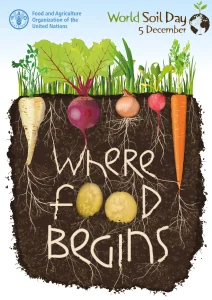
Like us, soils need a balanced and varied supply of nutrients in appropriate amounts to be healthy. Agricultural systems lose nutrients with each harvest. If soils are not managed in a sustainable manner and nutrients are depleted, then fertility is gradually lost and soils will produce nutrient deficient plants.
To maintain production over time, it is necessary to maintain a balance between nutrient inputs (i.e. synthetic and mineral fertilizers, organic residues, biological nitrogen fixation, atmospheric deposition) and nutrient removals (harvesting, erosion, loss of soil organic matter, greenhouse gas emissions).
Soil nutrient loss is a major process of soil degradation that threatens nutrition. It is recognized as one of the most critical problems globally for food security and sustainability worldwide.
About 33% of the world’s soils are already degraded and the trend is accelerating. In recent decades, soil fertility status has declined due to unsustainable soil management practices, causing a drastic reduction in the vitamin and nutrient content of food.
Over the past 70 years, the level of vitamins and nutrients in food has drastically declined and an estimated 2 billion people worldwide suffer from micronutrient deficiencies, known as hidden hunger because they are difficult to detect.
When biogeochemical cycles are not respected, nutrients removed during harvesting must be replaced by using fertilizer. Fertilisers are chemicals or materials derived from mineral, synthetic, organic or recycled sources.
However, excessive use of fertilisers causes soil and water pollution through leaching of nutrients, alteration of biogeochemical cycles, eutrophication of water bodies and emission of greenhouse gases. Globally, there is a nitrogen surplus (the amount of nitrogen added to the soil is greater than the amount of nitrogen removed from crops). As a result, almost half of the nitrogen applied through fertilisers enters the food chain and the rest is lost to the environment. On the other hand, nitrogen fertilisers are responsible for feeding 48% of the world’s population.
Moreover, when the nutrient content of soil is too high, it represents a toxic environment for both plants and animals. Contaminated soils endanger our food chain and the health of the planet.
Conversely, in some regions, the use of synthetic and mineral fertilisers is very low compared to the global average. Inadequate fertiliser use also has a significant impact on soil health, as it means that nutrients are removed from the soil and soil organisms do not have access to essential nutrients to grow and support nutrient cycling.
World Soil Day 2022 (#WorldSoilDay) and its campaign “Soil, where food begins” aims to raise awareness about the importance of maintaining healthy ecosystems and human well-being by addressing the growing challenges in soil management, raising awareness about soil and encouraging societies to improve soil health.
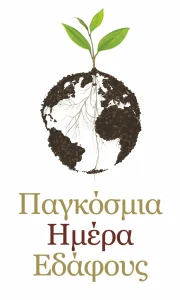
What can we do to take action?
Nature-based solutions to prevent and reverse nutrient imbalances in agri-food systems:
There is no single solution to all soil fertility problems, but nature offers a range of alternatives for increasing nutrients in soils.
Soil biodiversity can make a difference to soil nutrient status. The use of nitrogen fixing and phosphorus solubilising microbes and biofertilisation techniques increases the availability of nutrients for uptake by plants.
Improving soil health by adding organic matter and adjusting soil pH increases soil fertility and nutrient availability. Animal manure is a source of organic matter and beneficial micro-organisms and often an untapped source of nitrogen.
Composting and recycling of food waste can return nutrients to the soil and contribute to the circular economy.
Crop diversification and the inclusion of legumes improves nutrient cycling, nutrient use efficiency and nutrient storage in the soil, while reducing the need for external nutrient inputs.
If you are also a professional involved in land cultivation, you can contact BIOCHEMIKI Analytical Laboratories to analyze the soil of your crop to discover possible nutrient deficiencies and fertilization needs.
Contact us to receive a quote that suits your needs for soil analysis, leaf analysis of your crop or irrigation water analysis.
More information sources.

